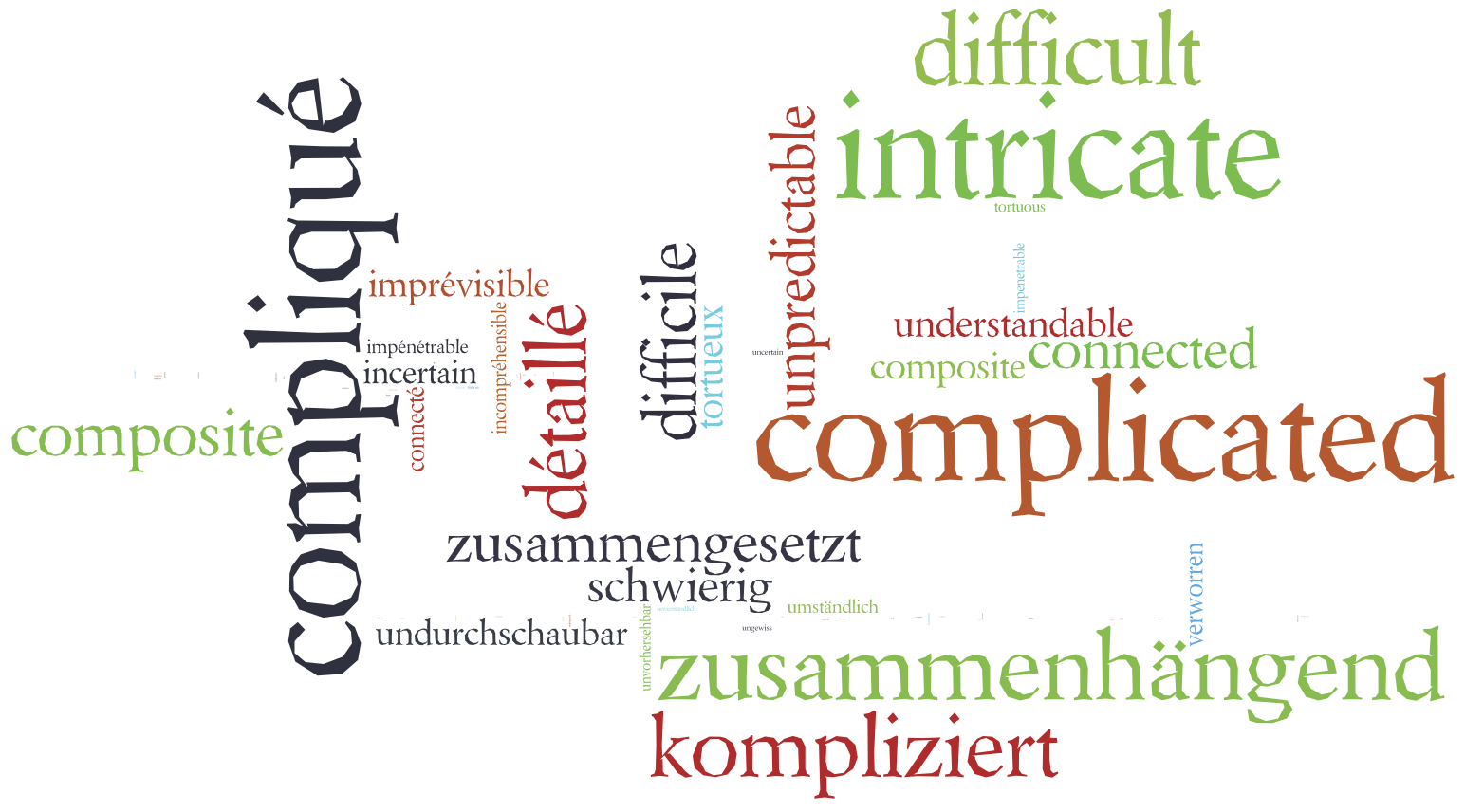Team:ETH Zurich/human/survey
From 2014.igem.org
Survey
Douglas Horton once said “The art of simplicity is the puzzle of complexity." We deal with complexity in our everyday life, we see it in nature. But how does this complexity emerge and how do we relate to it? Even before we can attempt to answer these questions we need to understand what people perceive as complexity and what they associate with it. Are the feelings associated with complexity positive or rather negative? Is a dog actually complex? And what about an atom? Or love? Where do people encounter complexity? How do they react to it; do they face it or do they choose to avoid it? In our survey, the questions range from general questions on complexity to questions directly related to our project.
However, before we tell you too much about our survey, we invite you to participate:
The survey can be filled [http://docs.google.com/forms/d/1pvFPVzfH1aiNdy3MdAaaFFzeWysCZyDDybcqgt7LyzY/viewform?usp=send_form in English], [http://docs.google.com/forms/d/1nLa1qMEAo9QjmIsOJgaN5pEVURDlVDqYKXuOvFnpjW4/viewform?usp=send_form in German] and [http://docs.google.com/forms/d/1fQ0ZjKvnr-Ssek9fihlDRhmQsVaG8rwxCrNGHDC2JDU/viewform?usp=send_form in French]
So far we have received 806 responses. The population consists of randomly selected people of all ages, sexes, and educational background. Further other iGEM teams were asked for their participation in our study, to have a more diverse population. Teams were requested to get more responses for our survey. Every team that managed to get at least 20 responses to our survey has been awarded a badge that can be posted on their wiki as a token of our appreciation. This task gave us a great opportunity to collaborate and network with different teams.
Our interpretations of the survey are summarised in the graphical illustrations below.
In the first part of our survey, we asked people to rate a list of 14 items on a scale of 1 (most simple) to 10 (most complex). The scale above is the median of the ratings for each item. From our survey, we found out that people almost unanimously agreed on human beings to be the most complex and a table to be the simplest. We also observed that people considered feelings, love, a cell, a dog and a city to be highly complex with a score of 9. It was also interesting to see that a computer and robot were considered to be equally complex with a score of 7. Hunger, calculator, battery and a house were considered to be relatively simple. In general we observed a trend of increasing complexity as we progressed from man made objects to living beings.
As mentioned above, we conducted the survey in three different languages - English, German and French. One of the questions in our survey was
How are your feelings about the word "Complex"? for which one could choose between three options- positive, neutral, and negative.
The combined results suggested that 54.32% felt neutral to the word, 32% associated it with positive feelings and about 13.7% had negative feelings for the word. However, as we looked at language specific responses we found that although the majority still felt neutral there was a difference in the numbers for positive and negative feelings. For instance, in Deutsch there was an equal number of positive and negative responses, while the French responses were slightly biased towards positive feelings (about 6%). In English however, 37% voted for positive feelings while only 12.77% voted as negative. This question in particular was interesting as it throws light on the variation in reactions to the word "complex" between people from different linguistic backgrounds.
The word cloud above shows how people perceive complexity. We asked people to choose at most three synonyms for complexity from a predefined list of words.
In English the list included words like complicated, intricate, tortuous, impenetrable, difficult, unpredictable, not understandable, connected, composite, and uncertain. Of these words complicated, intricate and difficult were the most voted synonyms.
In German zusammenhängend and kompliziert stood out from the other options - kompliziert, umständlich, verworren, undurchschaubar, schwierig, unvorhersehbar, unverständlich, zusammenhängend, zusammengesetzt, and ungewiss.
In French, majority chose compliqué, détaillé, and difficile from compliqué, détaillé, tortueux, impénétrable, difficile, imprévisible, incompréhensible, connecté, composite, and incertain.
While the combined responses agreed on the word "complicated" (kompliziert and compliqué) as the closest synonym to complex, there were differences in the other words chosen. We mainly attribute this to the variation in the meaning and usage of the word which is specific to a language.
Complexity in everyday life: English and German: at work (66%/67%), in a relationship (64%/61%), in nature (56%/60%) -> comparable French: in a relationship (74%), at work (67%), nature only at 5th place (16%) Cultural differences? Today’s world more complex? Yes: E: 61%/F: 59%/G: 59%, No: E: 22%/F: 25%/G: 21%); reasons? Reaction to complexity: Try to understand: E: 69%/F: 87%/G: 52%
Teams that hand in 20 or more surveys will get our badge. For more than 50 filled in surveys teams will receive the awesome golden badge.
 "
"















